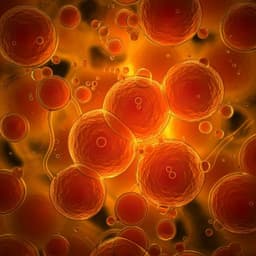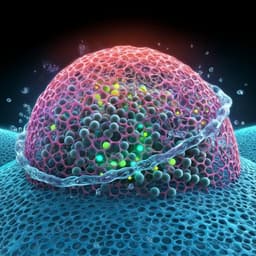
Chemistry
Self-regulated co-assembly of soft and hard nanoparticles
Y. Cui, H. Zhu, et al.
Discover how Yan Cui, Hongyan Zhu, Jiandong Cai, and Huibin Qiu unveil the potential of colloidal particles and block copolymer micelles in creating advanced materials with intricate structures. Their innovative approach harnesses noncovalent interactions to engineer complex, multidimensional assemblies that could revolutionize material science.
Related Publications
Explore these studies to deepen your understanding of the subject.







